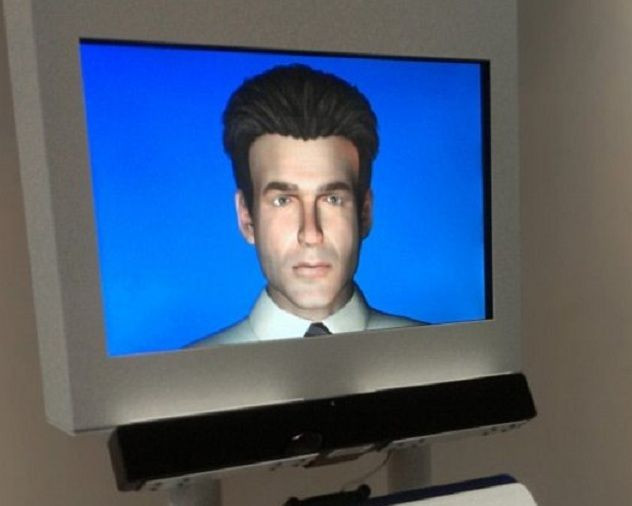US Unveils Latest Border Control Weapon: Lie-Detecting "Elvis" With a 90% Accuracy Rate

The U.S. government on Wednesday unveiled its latest weapon against illegal immigrants crossing the U.S. border: "Elvis" the ultimate lie-detecting virtual border control officer with a near-perfect, 90 percent, accuracy rate when spotting deception.
Developed by University of Arizona researchers in collaboration with U.S. Customs and Border Protection (CBP), officer "Elvis" is part of a high-tech computer system known as the Automated Virtual Agent for Truth Assessments in Real-Time, or AVATAR, kiosk.
Elvis, the black-haired virtual officer sporting a slicked back quaff, can interact with visitors coming to the U.S. while its sensors screen for unusual physiological responses and inputs visual information into complex algorithms to determine whether people are telling the truth.
Researchers said that the computer system identifies inconsistencies in human physiology that are nearly impossible for people to detect.
While people are only accurate about 54 percent of the time at detecting deception, researchers, working in the laboratory, found that Elvis is capable of detecting lies with up to a 90 percent accuracy rate.
The computer uses three sensors to detect lies: a microphone that monitors voice quality, pitch and frequency, an infrared camera that records pupil dilation and the focus of the eyes and a high-definition camera that looks at facial expressions.
Elvis is already being tested at a U.S.-Mexico border checkpoint at Dennis DeConcini Port in Nogales, Arizona, and could soon be popular at airports around the country.
The computer is being trialed with pre-approved "low-risk" travelers looking to sign up to the CBP's "Trusted Traveler" program.
Applicants for the immigration program must give their fingerprints for biometic reading and undergo an interview, both of which can be conducted efficiently by Elvis.
Researchers estimate that Elvis takes about five minutes on average to process each traveler.
Elvis greets visitors by telling them "I help the officers by asking some initial questions about your application."
Afterwards, visitors respond to a series of "yes" or "no" questions Elvis asks them in Spanish or English as if they were speaking to a real person.
Elvis monitors the visitors as they are answering the questions and if any usual physiological responses are detected, he will direct visitors to a human field agent who then conduct a more detailed interview process, said CBP spokesman Bill Brooks, according to CNN.
Originally the ATM-like kiosk did not come with an Elvis avatar feature, and it was only added after developers found that without it, people tended to speak to the machine in a robotic, unnatural manner.
The research team had also experimented on several avatars before they decided on Elvis because they discovered that the neutral male avatar was perceived as being more powerful and the female avatar was perceived as more likable.
Researchers say that the findings is important for future screening practices, and suggested that in the future people may select different avatars based on the individual being monitored.
The new project is still in the early phase of field testing and participating in the AVATAR interview process is purely voluntary at the current stage of development.
"We call him Elvis, or Pat," said Doug Derrick, a member of the University of Arizona team behind the project, according to CNN. "But when he's in the field he's just the AVATAR agent."



























